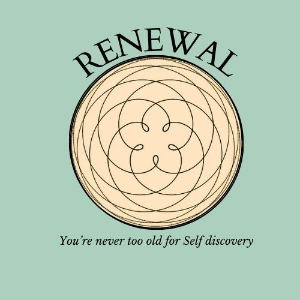No Bad Parts: Accepting all of your wonderful self
Have you ever caught yourself saying things like "I hate that I'm so anxious" or "I'm so stupid for feeling this way"? Maybe you've tried to force yourself to be different, to "just get over it," or to silence the parts of yourself that feel uncomfortable or inconvenient. If so, you're not alone – and you're also not faulty or broken. This is how we're taught to be with ourselves in our culture. We aren't taught how to be with ourselves any other way.
Internal Family Systems (IFS) therapy offers a radically different approach: There are no bad parts.
What is Internal Family Systems?
Created by Dr. Richard Schwartz, IFS is based on the idea that we all have multiple parts within us – different aspects of our personality that developed to help us navigate life. Think of it like having an internal family, where each member has their own personality, concerns, and ways of trying to help.
You might have a part that's fiercely independent, another that's deeply caring, one that's highly organised, and another that just wants to have fun. You might also have parts that carry pain, fear, or anger from difficult experiences. In IFS, we see all of these parts as valuable members of your internal system.
The Revolutionary Shift: From Fighting to Understanding
Most of us have learned to relate to our internal experiences through what I call "bulldozing" – trying to force our way through emotions, thoughts, or behaviours we don't like. We fight against our anxiety, judge our sadness, or shame our anger. We tell ourselves we "should" be different, stronger, more confident. Most of these behaviours comply, but they also rear their ugly heads again and again, no matter how we wish they wouldn't.
IFS invites us to make a fundamental shift: instead of fighting our parts, we learn to get curious about them.
What Does Curiosity Look Like?
Instead of "I hate that I'm so anxious," curiosity might sound like:
- "What is this anxious part trying to protect me from?"
- "When did this part first show up in my life?"
- "What does this part need from me right now?"
Instead of "I'm so stupid for crying," curiosity might ask:
- "What is this sad part holding for me?"
- "What would happen if I listened to this part instead of pushing it away?"
- "How is this part trying to help me heal?"
This shift from judgment to curiosity is profound. It moves us from being at war with ourselves to being curious about ourselves.
The Wisdom of Your Parts
Here's what IFS understands that many other approaches miss: your parts developed for good reasons. That anxious part? It's trying to keep you safe. That angry part? It's protecting something vulnerable. That people-pleasing part? It learned that keeping others happy was the way to stay connected.
Even the parts that seem "problematic" – the ones that procrastinate, avoid, or act out – are trying to help in the only way they know how. They're not enemies to be defeated; they're inner family members who need to be understood.
Meeting Your Self
At the core of IFS is the concept of Self – not another part, but your essential being. Self is naturally curious, compassionate, courageous, and calm. When you're in Self, you have the capacity to listen to your parts without being overwhelmed by them.
Think of Self as the wise, loving parent in your internal family. Just as a good parent doesn't shame a child for being scared or angry, Self doesn't shame your parts for how they're trying to help. Instead, Self gets curious, provides comfort, and helps coordinate your internal system.
The Practice of Self-Compassion
This approach requires a fundamental shift toward self-compassion. Instead of being your own worst critic, you become your own best friend. Instead of demanding that your parts be different, you start asking what they need.
This doesn't mean being permissive or letting harmful behaviours run unchecked. Rather, it means approaching your internal experiences with the same kindness you'd offer a good friend who was struggling.
What This Looks Like in Daily Life
Imagine you're procrastinating on an important project. The old way might be to berate yourself: "I'm so lazy! Why can't I just do this?"
The IFS way would be to get curious: "What part of me is procrastinating? What is this part worried about? What does it need to feel safe enough to move forward?"
You might discover that your procrastinating part is actually trying to protect you from potential failure or criticism. Once you understand this, you can offer that part reassurance and support, rather than judgment.
The Journey of Integration
IFS isn't about eliminating parts of yourself – it's about helping all your parts work together harmoniously. It's about developing internal leadership through Self, so you can respond to life's challenges from a place of wholeness rather than being hijacked by protective parts.
This takes time and patience. You're essentially learning a new language – the language of internal curiosity and compassion. Like any new skill, it takes practice.
Getting Started
If you're interested in exploring IFS, here are some gentle ways to begin:
- Notice your internal dialogue: Start paying attention to how you talk to yourself. When you catch yourself being self-critical, pause and get curious.
- Ask questions instead of making demands: Instead of "I shouldn't feel this way," try "What is this feeling trying to tell me?"
- Practice the pause: When you notice a strong reaction, take a breath and ask, "What part of me is activated right now?"
- Speak to your parts with kindness: Try addressing your parts directly: "I see you're really worried about this presentation. What do you need from me?"
Remember, there are no bad parts – only parts that need understanding, compassion, and integration. Your internal world is not a battlefield to be conquered, but a family to be loved.
Moving Forward
IFS offers a path toward deep self-acceptance and internal harmony. It's an approach that honours the complexity of human experience while providing practical tools for healing and growth. Instead of trying to fix yourself, you learn to understand yourself. Instead of fighting your parts, you learn to lead them.
The journey toward internal peace doesn't require you to become someone else. It simply requires you to become more curious about who you already are – all the parts of you, without exception.
If you're interested in exploring IFS therapy, consider working with a trained IFS therapist who can guide you through this transformative process with the support and safety you deserve.




Responses